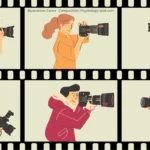
Modern life pushes us to accumulate a lot of things we don’t need while advertising encourages us to buy more and more. Without thinking. Unlimitedly…
Thus we end up associating our worth as people with the value of the things we own. As a result, it is not surprising that many end up identifying with their possessions and flaunting them as a trophy. They live to show.
However, living through things is not living. When we identify too much with things, we stop possessing them and they are the ones that possess us.
The Aristotelian question that we have not been able to answer
The most important question we can ask ourselves was the same one that Aristotle asked himself centuries ago: how should I live to be happy?
Most people don’t look within for the answer. They don’t ask themselves what makes them happy, excites or passionate, but lets themselves be carried away by circumstances. And currently these circumstances are marked by the consumer society.
Happiness, according to this new “gospel”, consists in leading a good life. And a good life literally means a life of consumption. If possible, ostentatious, so that our neighbors and followers on social networks can envy us.
However, betting on things as a way to achieve happiness is tricky. Due to the hedonistic adaptation, sooner or later we end up getting used to things, but when they deteriorate or become obsolete, they stop generating that initial satisfaction, which pushes us to buy new things to re-experience that feeling of euphoria. Thus we close the circle of consumerism.
Decades of psychological research shows precisely that experiences generate more happiness than possessions. A very interesting experiment conducted at Cornell University revealed why it is better to have experiences than to buy things. These psychologists verified that when we plan an experience, positive emotions begin to accumulate from the moment we begin to plan what we are going to do and remain long after.
Waiting for an experience generates more happiness, pleasure and excitement than waiting for the arrival of a product, a wait that is often more filled with impatience than positive anticipation. Imagining, for example, a delicious dinner in a good restaurant, how much we will enjoy the next vacation generates very different feelings than the desperate wait caused by the arrival of a product at home.
We are the sum of our experiences, not our possessions
Experiences are fleeting. Of course. We cannot use them as a sofa or a mobile phone. No matter how hard we try, we can’t encapsulate every second of life’s most important moments.
However, those experiences become part of us. They don’t fade away, we integrate them into our memory and they often change us. Experiences become a way to get to know ourselves, grow and develop as a person.
Each new experience that we live is like a layer that is deposited on top of the other. Little by little it transforms us. It gives us a broader perspective. Develop our character. It makes us more resilient. It makes us more mature people. So even though we can’t treasure experiences like possessions, we can carry them with us for the rest of our lives. Wherever we go, our experiences will accompany us.
Our identity is not defined by what we own, it is rather a mixture of the places we have visited, the people we have shared with and the life lessons we have learned. In fact, even bad experiences can become a good story if we are able to extract valuable learning.
Buying a new phone is unlikely to change our lives, but traveling could transform our view of the world. It’s no coincidence that our biggest regrets come not from missing out on a buying opportunity, but from not doing something. We didn’t dare. We didn’t go to that concert. We didn’t make that trip. We didn’t declare our love. We didn’t change our life…
There is almost always a second chance to buy things, but experiences cannot be duplicated. When we miss a trip or a special event, we miss out on all the stories that come along with it.
Therefore, if we want to minimize regrets at the end of life, it is better to broaden our horizon and prioritize experiences. We should make sure that we live to have stories to tell and treasure in our memory instead of languishing by accumulating things.
Source:
Gilovich, T. et. Al. (2014) Waiting for Merlot: Anticipatory Consumption of Experiential and Material Purchases. Psychological Sciences; 25(10): 10.1177.



